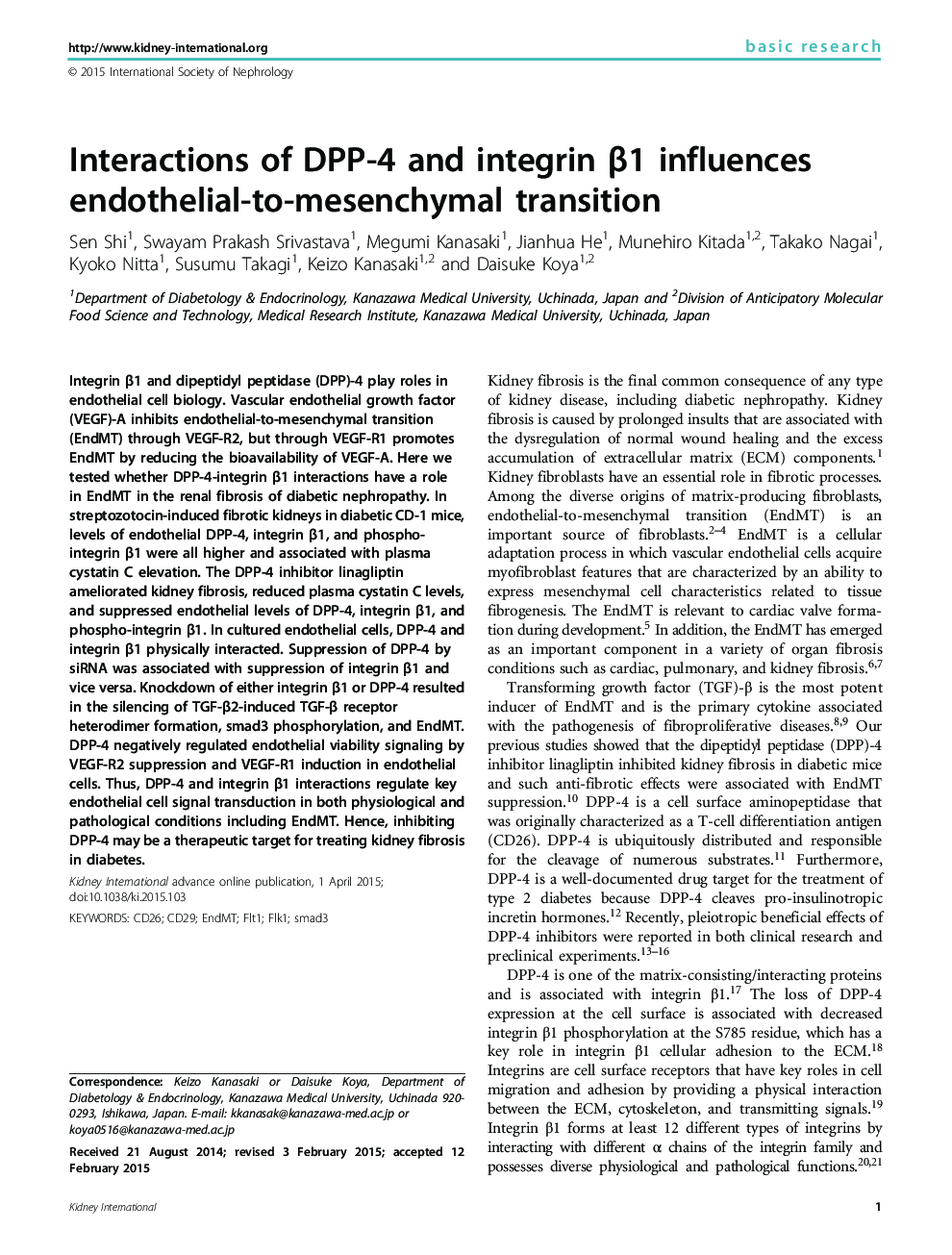| Article ID | Journal | Published Year | Pages | File Type |
|---|---|---|---|---|
| 6162045 | Kidney International | 2015 | 11 Pages |
Abstract
Integrin β1 and dipeptidyl peptidase (DPP)-4 play roles in endothelial cell biology. Vascular endothelial growth factor (VEGF)-A inhibits endothelial-to-mesenchymal transition (EndMT) through VEGF-R2, but through VEGF-R1 promotes EndMT by reducing the bioavailability of VEGF-A. Here we tested whether DPP-4-integrin β1 interactions have a role in EndMT in the renal fibrosis of diabetic nephropathy. In streptozotocin-induced fibrotic kidneys in diabetic CD-1 mice, levels of endothelial DPP-4, integrin β1, and phospho-integrin β1 were all higher and associated with plasma cystatin C elevation. The DPP-4 inhibitor linagliptin ameliorated kidney fibrosis, reduced plasma cystatin C levels, and suppressed endothelial levels of DPP-4, integrin β1, and phospho-integrin β1. In cultured endothelial cells, DPP-4 and integrin β1 physically interacted. Suppression of DPP-4 by siRNA was associated with suppression of integrin β1 and vice versa. Knockdown of either integrin β1 or DPP-4 resulted in the silencing of TGF-β2-induced TGF-β receptor heterodimer formation, smad3 phosphorylation, and EndMT. DPP-4 negatively regulated endothelial viability signaling by VEGF-R2 suppression and VEGF-R1 induction in endothelial cells. Thus, DPP-4 and integrin β1 interactions regulate key endothelial cell signal transduction in both physiological and pathological conditions including EndMT. Hence, inhibiting DPP-4 may be a therapeutic target for treating kidney fibrosis in diabetes.
Related Topics
Health Sciences
Medicine and Dentistry
Nephrology
Authors
Sen Shi, Swayam Prakash Srivastava, Megumi Kanasaki, Jianhua He, Munehiro Kitada, Takako Nagai, Kyoko Nitta, Susumu Takagi, Keizo Kanasaki, Daisuke Koya,
